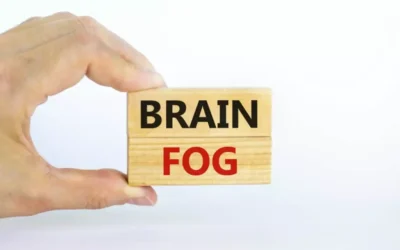This made some hemp-derived CBD products with less than 0.3% THC legal at the federal level. However, CBD products containing more than 0.3% THC still fall under the legal definition of marijuana, making them illegal at the federal level. Some states have legalized CBD, so be sure to check state laws, especially when traveling. Also, keep in mind that the FDA has not approved nonprescription CBD products, and some products may be inaccurately labeled. Cannabis-derived CBD products may be more effective than those from hemp, but industrial hemp-derived CBD still provides many health benefits.
The evidence for cannabidiol health benefits
This can be achieved through heating, smoking, vaporization, or baking of dried unfertilized female cannabis flowers. Cannabidiol, or CBD, is one of at least 85 active cannabinoids identified within the Cannabis plant. It is a major phytocannabinoid, accounting for up to 40% of the Cannabis plant’s extract, that binds to a wide variety of physiological targets of the endocannabinoid system within the body.
Pets and other Animals
It’s not intended to be a substitute for medical advice from a healthcare professional. Healthline encourages you to make any treatment decisions with your healthcare professional. A. The is cannabidiol addictive Animal Medicinal Drug Use Clarification Act of 1994 (AMDUCA), permits veterinarians to prescribe extralabel uses of approved human and animal drugs for animals under certain conditions.
- All animals — even down to invertebrates such as insects and leeches — have them.
- In addition, they have not been evaluated by the FDA to determine what the proper dosage is, how they could interact with other drugs or foods, or whether they have dangerous side effects or other safety concerns.
- The agency is working on answering these questions through ongoing efforts including feedback from a recent FDA hearing and information and data gathering through a public docket.
- Make sure the dosing syringe is completely dry before measuring your dose.
‘Extrajudicial extradition’: MPs alarmed about Chinese police escorting Australian resident to China for trial
Partial eta-squared (η2p) are reported to indicate magnitude of differences between groups. If you choose to use CBD oil, always discuss it with your healthcare provider to ensure it doesn’t interact with your prescription medications. CBD is not appropriate for pregnancy, breastfeeding, or in children.

What’s the evidence for medical marijuana?
With little current evidence that low-dose CBD has much medical benefit, he added, it may be years before the first CBD products appear on your pharmacist’s shelves. The other has been around for a while — it was given the green light by the TGA in 2012 — and it contains CBD and another cannabinoid, THC. It’s prescribed as a muscle relaxant for people with multiple sclerosis. There are two cannabis-based prescription-only medicines currently on the Australian Register of Therapeutic Goods (ARTG). “To get a therapeutic benefit, particularly for seizures or acute pain, it appears you probably need to take around 10 to 20 milligrams per kilogram, so roughly a gram of cannabidiol per day.”
- [1, 2, 3] Based on published animal research, there are also concerns that use of cannabis during pregnancy may negatively impact fetal brain development.
- These psychological disorders include an increased risk of psychosis and schizophrenia.
- General information on the potential adverse effects of using cannabis and its constituents can come from clinical trials that have been published, as well as from spontaneously reported adverse events sent to the FDA.
- CBD can also interact with other medications you’re taking, such as blood thinners.
- Importantly, medical cannabis products are generally not covered by most insurers and patients rely on out-of-pocket payments.
What are some conditions CBD can potentially treat?
Not only can cannabis help supplement and replace a regimen of opioid painkillers, cannabis appears to enhance the effects of opioids, allowing some patients to cut back their regular dose of pharmaceutical painkillers. These claims often begin with anecdotal evidence, early research, and animal studies, but human studies are finally starting to fill in the gaps around CBD’s touted https://ecosoberhouse.com/ benefits. With that caveat in mind, here’s what we understand about CBD’s potential therapeutic applications. Each of our bodies has a set of receptors that interacts with cannabis compounds called cannabinoids, like CBD. These receptors, found throughout the body, comprise the endocannabinoid system (ECS), a complex signaling system that ensures our bodies maintain homeostasis.

Special Health Reports
But, she added, your risk of side effects runs much higher at those doses. Low levels of brain serotonin, a neurotransmitter, are involved in depression and anxiety. CBD’s purported effects there — such as calming us down and helping us nod off at night — are all controlled by evolutionarily ancient brain systems that regulate vital functions such as appetite, emotion, fear and sleep. CBD may alleviate some of the distress experienced in chronic pain, although exactly how it does this isn’t clear. Receive updates on new products, special offers, and industry news.
New Research Explores the Effects of Cannabidiol on General Health – UNCO News Central
New Research Explores the Effects of Cannabidiol on General Health.
Posted: Thu, 25 Jan 2024 08:00:00 GMT [source]



